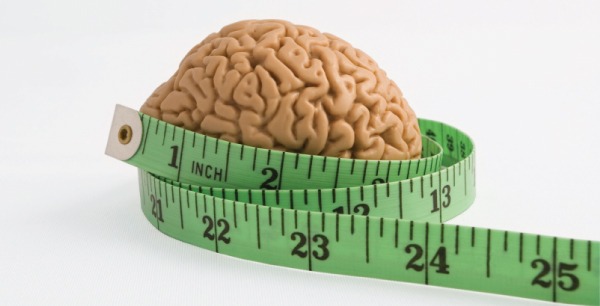Study: Higher body mass index (BMI) linked to episodic memory deficits in young adults
 Obesity May Worsen Episodic Memory, Make It Harder To Keep Track Of Certain Events (Medical Daily):
Obesity May Worsen Episodic Memory, Make It Harder To Keep Track Of Certain Events (Medical Daily):
“High body mass index (BMI) has been associated with certain health risks, which may now include cognitive impairment, according to preliminary research published in The Quarterly Journal of Experimental Psychology. The study, led by researchers from the University of Cambridge, found that young adults who are overweight may have poor episodic memory — a weakened ability to recall past events compared to their normal-weight peers…
“Although only a small study, its results support existing findings that excess bodyweight may be associated with changes to the structure and function of the brain and its ability to perform certain cognitive tasks optimally,” researchers wrote..“The possibility that there may be episodic memory deficits in overweight individuals is of concern, especially given the growing evidence that episodic memory may have a considerable influence on feeding [behavior] and appetite regulation,” Cheke added.
Study: Higher body mass index is associated with episodic memory deficits in young adults (The Quarterly Journal of Experimental Psychology)
- Abstract: Obesity has become an international health crisis. There is accumulating evidence that excess bodyweight is associated with changes to the structure and function of the brain and with a number of cognitive deficits. In particular, research suggests that obesity is associated with hippocampal and frontal lobe dysfunction, which would be predicted to impact memory. However, evidence for such memory impairment is currently limited. We hypothesised that higher body mass index (BMI) would be associated with reduced performance on a test of episodic memory that assesses not only content, but also context and feature integration. A total of 50 participants aged 18–35 years, with BMIs ranging from 18 to 51, were tested on a novel what–where–when style episodic memory test: the “Treasure-Hunt Task”. This test requires recollection of object, location, and temporal order information within the same paradigm, as well as testing the ability to integrate these features into a single event recollection. Higher BMI was associated with significantly lower performance on the what–where–when (WWW) memory task and all individual elements: object identification, location memory, and temporal order memory. After controlling for age, sex, and years in education, the effect of BMI on the individual what, where, and when tasks remained, while the WWW dropped below significance. This finding of episodic memory deficits in obesity is of concern given the emerging evidence for a role for episodic cognition in appetite regulation.
To learn more:


